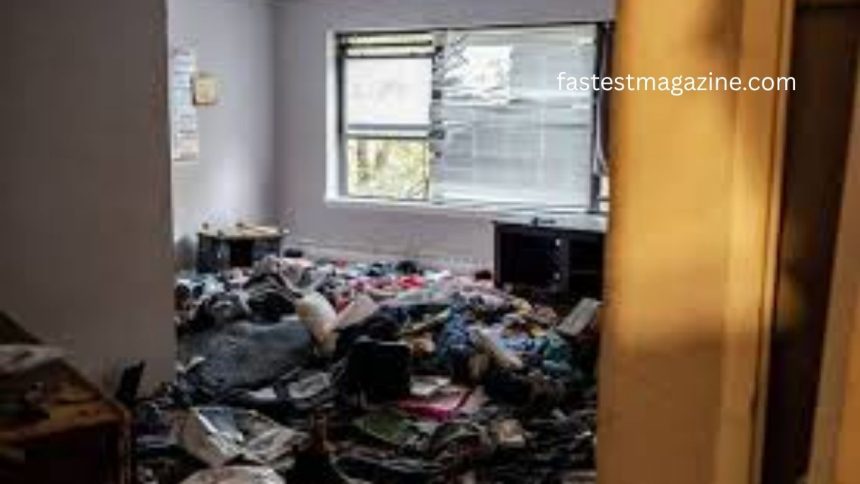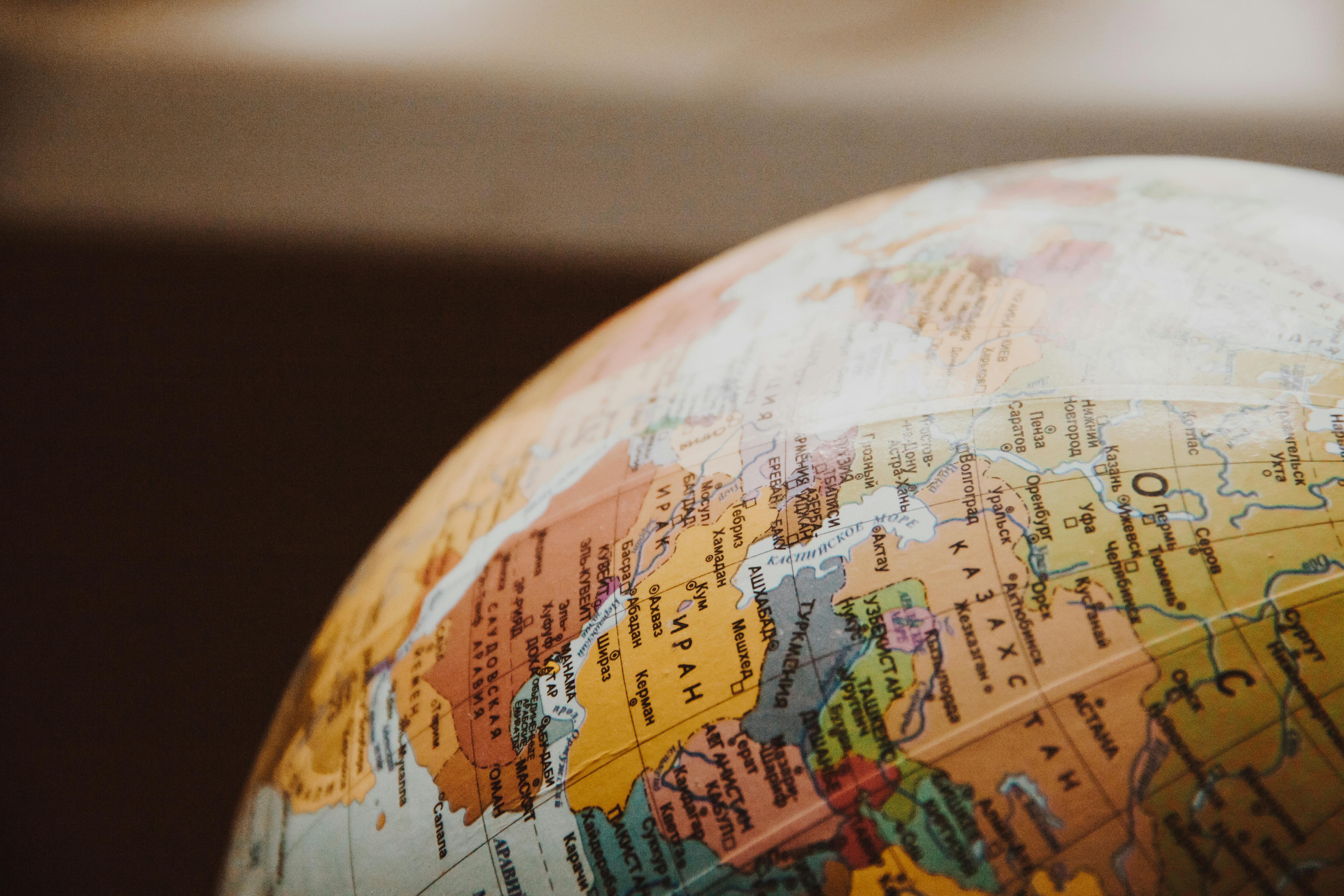Chicago, October 4 — A late-night U.S. Border Patrol raid in Chicago has ignited national outrage after reports surfaced that American citizens and families were swept up in a forceful operation aimed at alleged gang members. The aggressive display of federal power marks a new phase in President Donald Trump’s expanding use of Border Patrol agents in major U.S. cities.
Read More: https://fastestmagazine.com/media-empire-set-to-redefine-influence/
Helicopters, Door Breaches, and Chaos in the Night
Residents in Chicago’s South Side were jolted awake early Tuesday as Border Patrol agents rappelled from helicopters, broke down doors, and stormed apartment buildings. Officials claimed the raid targeted alleged members of the Venezuelan gang Tren de Aragua, but eyewitnesses say innocent residents—including U.S. citizens and small children—were caught in the chaos.
One resident, Naudelys, a 19-year-old Venezuelan asylum seeker, recounted the terrifying scene. She was home with her 4-year-old son when agents burst through her door with guns drawn. “They told us to raise our hands,” she said. “One officer hit a man in front of my child. My son was traumatized.”
Naudelys, whose husband has been detained for three months by immigration authorities, said she tried to record the raid but an agent knocked away her phone. She also alleged that some agents made inappropriate comments about Venezuelan women and told them to “go back to their country.”
The U.S. Department of Homeland Security (DHS), which oversees Border Patrol, has not yet commented on her account.
Border Patrol’s Expanding Role Beyond the Border
The raid underscores the Trump administration’s unprecedented expansion of Border Patrol’s authority into U.S. cities far from the nation’s borders. Normally tasked with patrolling the frontiers with Mexico and Canada, the agency’s 19,000 agents have increasingly been deployed to enforce immigration laws within urban communities.
According to officials, the operation—part of the broader Operation Midway Blitz launched last month—resulted in dozens of arrests. The DHS confirmed that the raid involved collaboration with the FBI and the Bureau of Alcohol, Tobacco, Firearms and Explosives (ATF). Authorities reported 37 arrests, most involving Venezuelan nationals accused of immigration violations, and said two of those detained were suspected members of Tren de Aragua.
A DHS spokesperson defended the operation, stating it was “conducted in full compliance with the law.” However, they refused to confirm whether agents had valid warrants for forced entry, citing “security sensitivities.”
Children Separated from Their Parents
The operation also led to the temporary separation of several U.S.-born children from their parents. DHS confirmed that four American children were taken into custody after their parents were detained for lacking legal status. The agency said the children were transferred to “safe guardianship or state care” until arrangements could be made.
Naudelys and her son were later released due to her pending asylum case. When she returned home, her apartment had been boarded up—and her belongings were gone.
“It feels like we lost everything again,” she said quietly. “We came here for safety.”
Community Shock and Fallout
The raid left behind debris, shattered doors, and deep fear among residents. Many are still reeling from the trauma. Longtime Chicagoan Cassandra Murray, 55, said the sudden militarized action shook the entire neighborhood.
“I heard loud blasts, like explosions,” she said. “My Venezuelan neighbors have lived here peacefully for two years. They’ve never caused trouble—they were just trying to start over.”
Others shared similar accounts of being forced to the ground or zip-tied by agents. For many, the event brought back memories of aggressive federal crackdowns seen during earlier immigration enforcement waves.
Experts Warn of Eroding Public Trust
Critics argue that deploying Border Patrol in city neighborhoods blurs the line between immigration control and local policing. Gil Kerlikowske, former commissioner of U.S. Customs and Border Protection, said the tactics used by federal agents are not suited for urban environments.
“Border agents are trained for interdiction, not community policing,” he explained. “Using them in residential neighborhoods risks escalating fear and undermining trust.”
The concern extends beyond Chicago. Earlier this year, Border Patrol faced backlash in Los Angeles for conducting sweeps in public spaces such as Home Depot parking lots, leading a federal judge to temporarily block the practice for racial profiling. However, the U.S. Supreme Court recently reinstated the Trump administration’s authority to resume such tactics.
Leadership Under Scrutiny
At the center of these controversial operations is Gregory Bovino, Border Patrol’s commander-at-large. Known for his brash social media presence, Bovino has been directing urban enforcement efforts in cities like Los Angeles and Chicago.
“We are here, Chicago, and we are not going anywhere,” Bovino declared on X (formerly Twitter) last month, alongside a video showing the arrest of a Venezuelan man in a Home Depot parking lot. The clip, set to a Travis Scott song, drew criticism for appearing to glorify enforcement actions.
His leadership style has sparked outrage from both local officials and human rights groups, who accuse him of using social media to promote fear rather than safety.
Political Backlash and Public Outcry
Illinois Governor J.B. Pritzker, a Democrat, condemned the deployment of armed Border Patrol agents in the city, calling it “an act of authoritarianism.” At a press conference, he blasted Bovino’s approach:
“Gregory Bovino is causing chaos while posing for photo ops and TikTok videos,” Pritzker said. “This is not law enforcement—it’s intimidation.”
Civil rights advocates and immigration organizations echoed these sentiments, urging federal lawmakers to investigate the operation. The American Civil Liberties Union (ACLU) of Illinois released a statement demanding transparency:
“No one should have their home invaded without a warrant, least of all families seeking safety. Chicago deserves accountability.”
A Growing Divide Over Immigration Policy
The Chicago raid reflects a broader shift in immigration enforcement priorities under the Trump administration, which has sought to punish so-called “sanctuary cities” that limit cooperation with federal immigration authorities. Chicago, along with New York, Los Angeles, and San Francisco, has long refused to assist in deportation efforts that target non-criminal immigrants.
Supporters of the operation argue that cracking down on transnational gangs like Tren de Aragua is essential to national security. Critics, however, say that labeling immigrant communities as threats only deepens division and fear.
“The administration is using immigration enforcement as a political weapon,” said immigration lawyer Elena Ramirez. “Instead of targeting actual criminals, they’re terrorizing families.”
Human Stories Behind the Headlines
For Naudelys and others caught in the raid, the political debate feels far removed from their reality. They are parents, workers, and asylum seekers trying to rebuild their lives in a new country.
“I left Venezuela to protect my child,” she said, clutching her son’s small hand. “But now I don’t know if we’re safe anywhere.”
Frequently Asked Questions:
What happened during the U.S. Border Patrol raid in Chicago?
The U.S. Border Patrol conducted a large-scale late-night operation in Chicago’s South Side, using helicopters and tactical units. Officials claimed the mission targeted gang members, but eyewitnesses reported that American citizens and immigrant families were also detained.
Why did Border Patrol agents carry out a raid in Chicago?
The raid was part of the Trump administration’s Operation Midway Blitz, which expands Border Patrol’s role beyond the nation’s borders. The operation aimed to locate alleged members of the Venezuelan gang Tren de Aragua but also swept up residents without criminal ties.
Were any families or children affected by the Chicago raid?
Yes. Several families, including those with U.S.-born children, were caught in the operation. DHS confirmed that four American children were separated from their parents, who were detained for lacking legal status, before being placed in temporary state care.
How many people were arrested during the Chicago raid?
According to the Department of Homeland Security, 37 individuals were arrested, most on immigration violations. Two of those arrested were alleged members of Tren de Aragua, while others faced minor charges such as battery or drug possession.
What is Tren de Aragua and why is it being targeted?
Tren de Aragua is a Venezuelan criminal organization linked to drug trafficking, extortion, and violence across Latin America. U.S. authorities have classified it as a terrorist organization, leading to intensified operations against suspected members in major U.S. cities.
Why is the use of Border Patrol agents in cities controversial?
Critics argue that Border Patrol agents are trained for border enforcement, not urban policing. Deploying them in cities can lead to excessive force, racial profiling, and erosion of community trust—especially in immigrant neighborhoods already fearful of deportation.
What has been the response from local officials and human rights groups?
Illinois Governor J.B. Pritzker and civil rights organizations condemned the raid, calling it an “authoritarian overreach.” The ACLU of Illinois demanded an investigation into the legality of the operation and the treatment of residents during the raid.
Conclusion
The Chicago raid has become a defining moment in America’s ongoing struggle over immigration enforcement, civil rights, and the limits of federal power. What began as an operation to capture alleged gang members ended in fear, confusion, and heartbreak for many innocent families. The deployment of Border Patrol agents—trained for border defense, not community policing—has drawn widespread criticism for blurring jurisdictional boundaries and endangering public trust.















